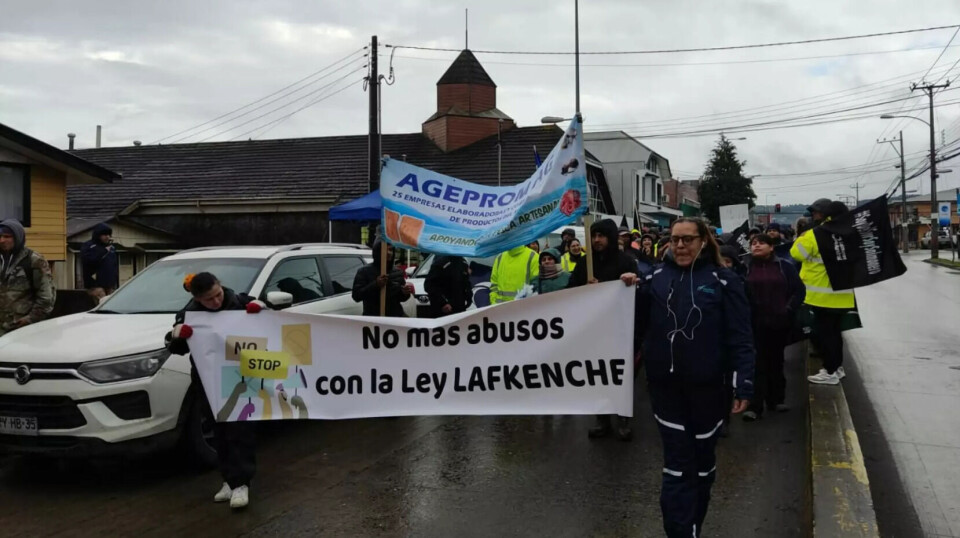
Marine sector plans huge protest against ‘coastal spaces’ handover
Workers fear for jobs if indigenous bids for huge tracts of coastline are granted
Salmon workers and those from other aquaculture and related sectors will gather in Chile’s ‘salmon capital’ of Puerto Montt on Friday to march against bids for Coastal Marine Spaces for Native Peoples (Espacios Costeros Marítimos de Pueblos Originarios, or ECMPO) which are being requested by some indigenous communities in Los Lagos region.
The salmon workers, along with artisanal fishermen, shore gatherers, shellfish farmers, indigenous communities opposed to the ECMPOs, truck drivers, and residents of Quellón – a salmon port city in the south of Chiloé Island – are due to take part.
The protest follows a march in Quellón a couple of weeks ago and will be held as members of the Los Lagos Regional Coastal Edge Use Commission meet to vote on whether to grant the ECMPO requests.
Rights of access
Four ECMPOs – called Compu, Chanco, Borde Costero Muelle Conectividad and Isla Linauac – have been requested in the Quellón area, and another, called Linao, in Ancud in the north of Chiloé Island.
The ECMPO requests are being made under the Lafkenche Law that grants limited resource access rights to all coastal indigenous communities, in designated portions of Chile’s coastal areas, for traditional uses including harvesting practices.
Non-indigenous coastal users, including salmon farmers, argue that the law is being wrongly applied and that the applications for vast tracts of sea go against the spirit of the legislation.
Earlier this month, Marcelo Lipka, vice president of the Multi-Union of Salmon Farming Workers, told Fish Farming Expert’s Chilean sister site, Salmonexpert.cl, that ECMPOs covering more than 621,000 hectares are being requested for only 36 Indigenous people who, if the request in granted, “will say who works in their areas and who does not, thus that our activity is affected”.
1.6 million hectares
Leaders of workers that could be affected met with Presidential Gabriel Boric's delegate for Los Lagos, Giovanna Moreira, to inform her of what they say is the misuse of the Lafkenche Law and request that the ECMPO requests are rejected.
“We want the curtain to be lowered on the ECMPO requests that will be voted on May 31, because they involve more than 1.6 million hectares of coastal border, contrasting with almost 70% of the productive and labour sources linked to the maritime territory,” said salmon unions’ spokeswoman Marta Oyarzo.
“We hope that the government has the solidity and responsibility to ensure the common good, not to generate more labour disruptions, which would worsen the regional situation.”
'Coast belongs to all'
lonko (indigenous chief) Juan Huaiquil, who opposes the ECMPOs, made it clear that “on May 31 all activities will be paralysed due to the ECMPO vote that is being requested mainly in Quellón. We call on the entire population to mobilise, we want to live in harmony, so that the coastline belongs to all Chileans to grow”.
Victorio Cerón, leader of artisanal fishers, called on the government to reject the ECMPO requests until there is a modification to the Fisheries and Aquaculture Law, and that clear rules are generated for regional productive development, removing uncertainty that surrounds coastal activities.






















































